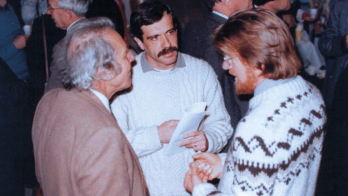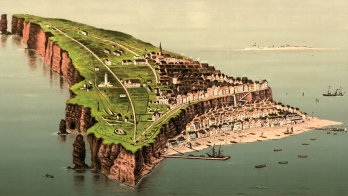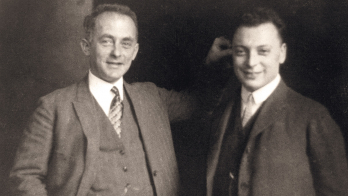by Frank Close, Oxford University Press. Hardback ISBN 9780199225903, £9.99 ($19.50).

This is a small book – you can read it in an evening – about the intriguing subject of “nothing”. Close takes us through history from the earliest philosophers, who concluded that “Nature abhors a void”, through the period of arguments about the non-existent Ether, up to the present time, where the void is considered to be a seething quantum-mechanical foam. He describes how the concepts of space and time are linked to the different ideas of “the Void” and ends with current speculations: maybe our entire universe is a quantum fluctuation with near-zero total energy. I learnt that the different forces are influenced by the structure of the void and that some constants of nature may be the random result of spontaneous symmetry breaking, both of which added to my very tenuous non-grasping of the Higgs question.
So far so good. Fortunately, I had already read a number of texts around the subject, for some passages are difficult to grasp because of the sometimes ungrammatical sentences – page 35 gets my all-time prize for totally confusing the reader.
It is unclear to me who the target audience is; the level required to understand the text ranges widely depending on the chapter. Close sometimes uses advanced concepts without explanation and has to rely on more than a little familiarity with the mysteries of quantum mechanics. As with most popular books of this type, those mysteries remain whole, although I must say in favour of The Void that it manages, for once, to leave out Schrödinger’s cat.
I also wonder if the text has been proof-read. Here are just two examples from too large a set: though Close was once head of communications and public education at CERN, he tells us that CERN started in 1955 (it was 1954) in a sentence that cannot be parsed in any language. I share some of his criticisms of CERN’s exhibition centre, but find it difficult to accept that for an entire page he uses “La Globe”, when the correct French is “le Globe” as can be read on CERN’s public website. Did no-one spot this? Fortunately for the author, but unfortunately for the publishing business, this book is not alone in being the victim of such sloppiness.
So, The Void is well worth reading; then send in your corrections.








